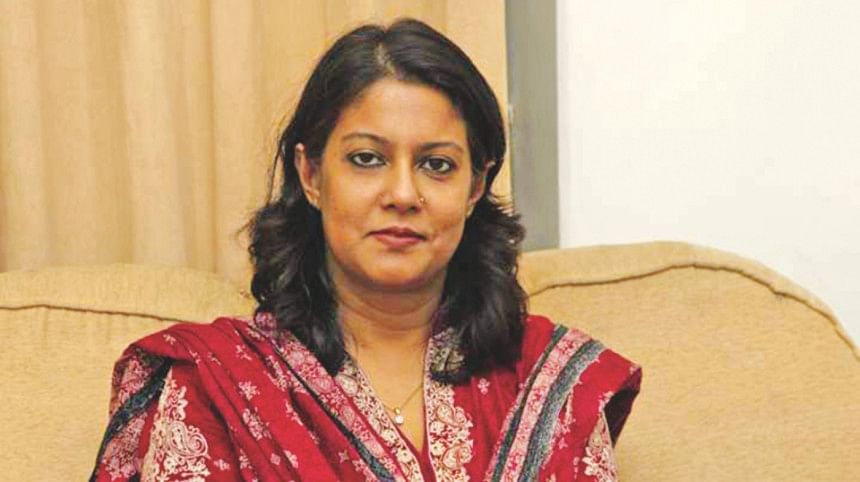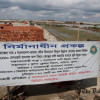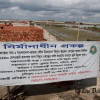Rampal power plant: EIA grossly faulty

The Sundarbans, a magnificent and unique ecosystem of the world, faces an existential crisis today with the coal-fired power plant to be set up at Rampal. It has been a content of discord between environmentalist and those who are pushing the plant. Both sides are giving out their own arguments in favour of and against the plant to be set up within 14 kilometres of the mangrove forest. The Daily Star wants to bring to the public the arguments and the counterarguments that the protagonists and antagonists of the plant have to make. Syeda Rizwana Hasan, a leading environmental attorney and chief executive of Bangladesh Environmental Lawyers' Association (BELA), talks with Pinaki Roy.
The Daily Star (TDS): If we go through the Environmental Impact Assessment (EIA) of Rampal, we see it answers everything. I mean, it mentions coal-transportation, management of fly ash and toxic chemicals. Then why should we distrust the company or why should we be anxious about the Sundarbans?
Hasan: I do not agree the EIA report has answers to every question. The EIA of Rampal is very evasive and vague on a number of crucial issues. I shared the EIA report with my peers in India who regularly monitor environmental implications of development projects and challenge the same when appropriate through legal platforms. The analysis that I received from the EIA Resource and Response Centre of India clearly records that the EIA is grossly deficient and faulty on major accounts that include cumulative impact assessment, study on radiation, quantitative assessment, proper and effective public consultation, site selection, coal source and so on. It mentioned the fact India's EIA Manual on Thermal Power Plants (TPP) suggests location of TPPs to be at least 25 kilometers from the outermost periphery of Ecologically Sensitive Areas. The analysis also cited example of suspension of a Thermal Power Plant for its close proximity to mangrove. This order for suspension came from the National Green Tribunal (NGT) relying on the “precautionary principle” and the “sustainable development” approach that have not at all been reflected in the (Rampal) EIA document.
TDS: The company and the officials of the PDB and the ministry have been talking about several modern technologies to be used in the Rampal power plant. Why do you think, the Sundarbans will be damaged even after using those technologies?
Hasan: I have not heard of a foolproof coal power generation process. I have heard of worst, bad, and better. The propaganda on Rampal is a “look good” campaign and it can satisfy only those who are predetermined to go ahead rather than follow the shifts in the global energy scenario. If you want to make it “better”, the investment required will render futile the pleadings for cheap energy which again is a misnomer as highly credible international research has already proven it to be cost-ineffective. If one adds the environmental risks, the real value of costs is really prohibitive. I believe that the project will harm the Sundarbans because multiple national and international scientific analyses have shown extremely reliable evidence of its harmful effects.
The contrary analyses have come only from the project proponents, their hired consultants, paid experts and other blind supporters. I have little or no confidence on the assurances of the company and the government players because their track records are questionable. I request everyone to search for the track record of NTPC. It is clear that the Expert Appraisal Committee on EIA of TPP in 2010 and 2011 expressed their dissatisfaction about the fly ash management of NTPC. The ash pond management and in general the environment management of the company has given rise to major tensions in Angul, Korba, Visakhapatnam, Talcher and recently in Kudgi, and Baijarpur where local farmers are opposing a 4000 MW plant of NTPC and are demanding (June, 2016) that the company executes security bonds before commencing construction of the plant. In 2011, the Orissa government asked NTPC to shut down completely the 2,000 MW stage-II of Talcher Super Thermal Power Station amid concerns over fly ash management.
Coming to our own government, can anyone answer how much compensation Niko or Occidental has paid to the people of Bangladesh for blowing our vital gas reserves with their sheer negligence? How many government run industries have ETPs that are functional? Has anyone paid any compensation for the three incidents of sinking of cargo ships in the Shela, Bhola and Passur rivers of the Sundarbans that we witnessed in 2014 and 2015?
Since we can't answer any of these questions in the positive, let us not be pretentious and fool ourselves.
TDS: There were allegations or we have heard, the government violated some rules and environment laws since the beginning. For instance, they started development of the site before taking any site clearance. Did the government really violate rules or bend laws in Rampal?
Hasan: In approving Rampal, the government and the company surely have misinterpreted and undermined national and international laws. In interpreting laws, we do not read the exact words only. We read the provisions and the spirit and read between the lines. I strongly contend that in signing the agreement and in starting the work, serious violations of environmental and forest laws have been committed while international laws on protected area management have been grossly undermined.
TDS: The Sundarbans are threatened in many other ways like unchecked tourism, poaching, illegal logging, and unplanned development going on in the area. Why are the environmentalists not raising their voices?
Hasan: Those who blame the environmentalists for not raising voices against these are uninformed. Even if it were true that we have not been effectively campaigning against these malpractices, will it not be wise for the government to take it on itself as the legal mandate to protect the Sundarbans rests with it? If the ecology of the Sundarbans is threatened and the government knew of it, why didn't the government declare the Sundarbans an Ecologically Critical Area under section 5 of the ECA and take special protective measures? The attempt to have a polluting industry by the side of an already ailing eco-system is like killing your ailing mother. Do you kill your mother when she is sick or do you take her to the doctor and treat her?
TDS: Recently we have seen reports, the ministry of Environment and Forest has approved around 150 industries in the ECA zone.
Hasan: Such authorizations are beyond their legal mandate and should be immediately scrapped.
TDS: Currently the people living around the Sundarbans are mainly involved in illegal logging, and poaching. But the Rampal power plant would help to develop the southern region of the country and eventually it will help create job opportunities for the poor people. What are your views on that?
Hasan: Such arguments are faulty, deceptive, humiliating and demeaning for the poor communities and run against their constitutionally guaranteed right to profession. If there were illegalities, why didn't the Forest Department check that? The project can only employ a few technical persons for a length of time. I cannot see a woodcutter or a honey collector becoming a full time employee of the company as they do not have the required technical expertise and probably are not willing to serve the company responsible for the loss of their ancestral professions.
TDS: Don't you think we should accept some damages to the environment or the Sundarbans for the sake of development?
Hasan: An emphatic “no”; Sundarbans is non-negotiable. It is not ours only, it belongs to the entire global community and we are mere custodians. We can't afford to take minimum risk with the Sundarbans given that there is one and only one Sundarbans and that alternative sites, technologies and processes are available and are affordable. If, respecting the public opinion, the Sri Lankan government could scrap (on 18 May, 2016) the 500 MW coal plant deal with India, can Bangladesh not do the same?
TDS: Are you against coal power plant? If so what is your alternative proposal for electricity generation?
Hasan: As an environmentalist and knowing the major reason behind today's climate crisis, I have no hesitation in affirming my anti-coal position. Things do not change overnight but you have to have the right vision to set things on the right track. I think as the fastest adopter of solar energy, Bangladesh has a great potential for renewables. I believe that an energy revolution is possible, particularly when the country already has a Renewable Energy Policy (2008) and has set up Sustainable and Renewable Energy Development Authority that is working to achieve a target of 10% of renewable energy by 2020. I strongly feel that this target should be increased and replace the 50% target set for coal energy by 2025, if not 2020.
Yes, I am aware that the developed countries and the BASIC countries (Brazil, South Africa, India, and China) are heavily coal or fossil fuel dependent. But I also know that this is the precise reason for the climate catastrophe. I am also aware of the fact that half of the 55 lakh people who die every year on account of air pollution live in China and India, a major source of which is coal burning. China now gets bottled air from the Rocky Mountains for its citizens to breathe. Why should we follow their footsteps in making the world even more dangerous? Germany has already made a major shift and just celebrated the 19th of May, 2016 as a day when the Germans got almost all of their power from renewable sources.
Are we not aware that Iceland, Norway and Denmark are following the German footstep while South Africa, China and USA have made significant investments in renewables as they intend to steadily shift from fossil? The renewable energy policy of India is very encouraging and so is the fact that the Green Tribunal of the country has stopped a good number of Thermal power plants solely on environmental considerations. If India can decide to halt its coal import in 2-3 years, cancel at least four proposed coal-fired power plants with a combined capacity of 16 gigawatts, and provide low cost loans and grants for renewables, can Bangladesh not follow the same steps?
Today or tomorrow, we will all have to switch to renewables as those are the only sustainable resources while others, be it gas, coal or oil, will deplete, sooner or later.
(Lawyer Syeda Rizwana Hasan is an environmental attorney and chief executive of Bangladesh Environment Lawyers Association (BELA), a pioneer in public interest litigation in Bangladesh. She spearheaded a legal battle resulting in increased government regulations and heightened public awareness in environmental issues. She received the Ramon Magsaysay award and the Goldman environmental prize among other international awards.)

 For all latest news, follow The Daily Star's Google News channel.
For all latest news, follow The Daily Star's Google News channel. 







Comments